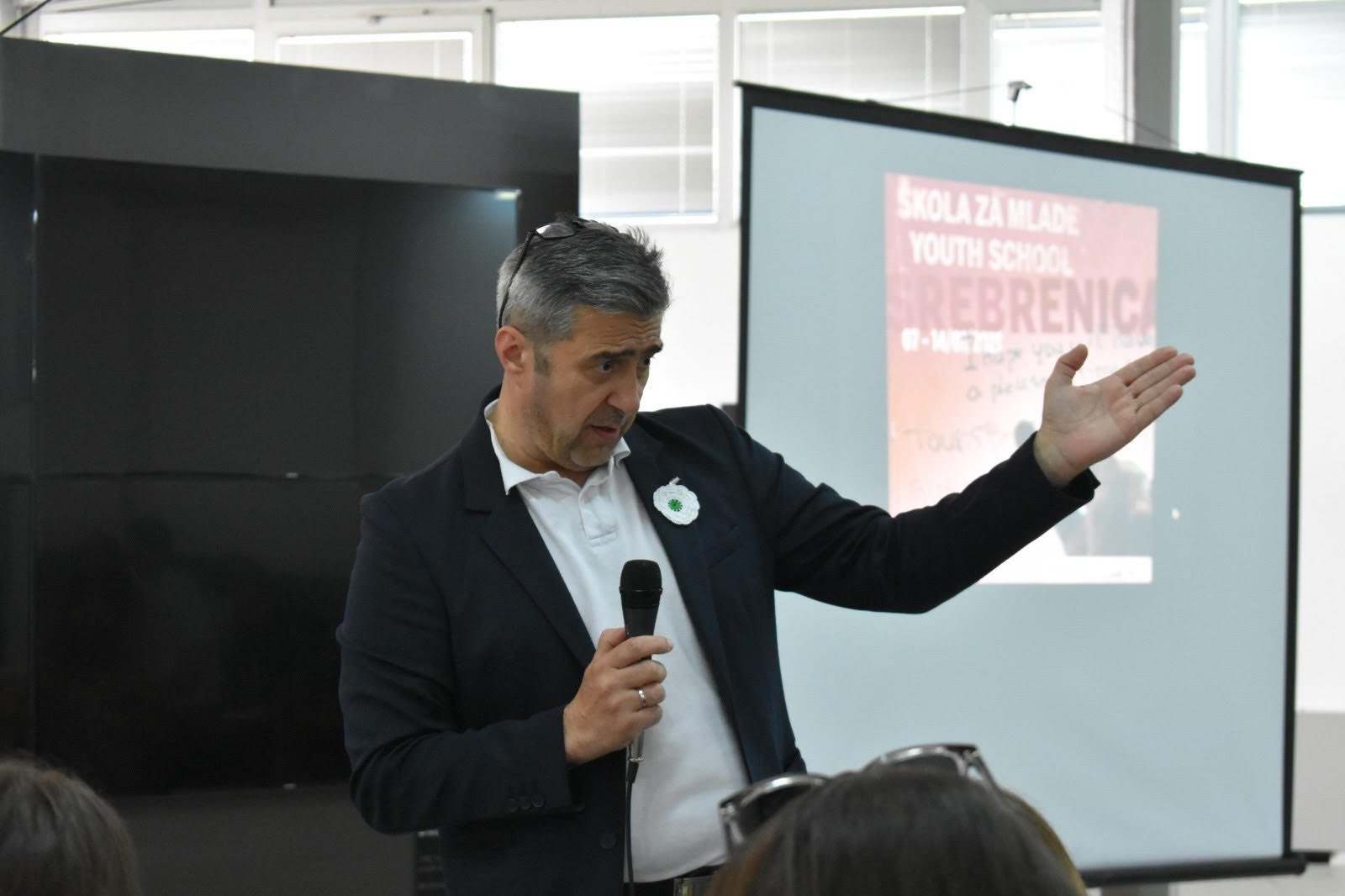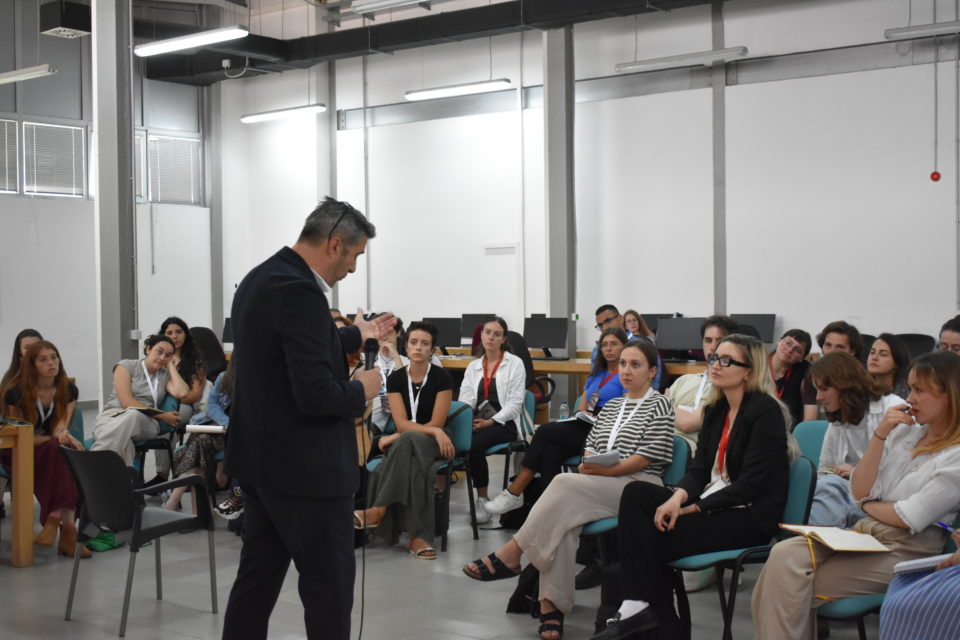
Leading up to the 28th commemoration of the Srebrenica genocide, the Srebrenica Youth School featured a lecture by Dr. Dino Abazović, a professor from the Faculty of Political Sciences at the University of Sarajevo.
Addressing the audience of young human rights scholars, Dr. Abazović posed many thought-provoking questions: What is the relationship between the Westphalian nation state and religion? How have political leaders exploited the human need for collective belonging to consolidate power? To provide students with a foundation for these discussions, Dr. Abazović began by setting out the definitions of key concepts.
He distinguished “religion” as a communal practice from individual belief, noting that organized religion involves a sense of collective identity and hierarchy. Thus, this form of belonging has had inherently political implications throughout history. The interaction between religion and politics shaped the formation of mankind’s oldest political structures as well as the contemporary international order. For example, Dr. Abazović referred to how, in a post-reformation context, the new intelligentsia manipulated religious narratives to fit the framework of the nation, ultimately embedding religious nationalism within our most fundamental political concepts.
These grand narratives functioned relatively well in the Western Balkans for hundreds of years, until the region was thrown into crisis in the 20th century. This era saw a rise in the importance of religion, particularly with regard to the motifs of chosen people, promised land, and messiahs.

“Religious symbols were used as national symbols,” explained Dr. Abazović, discussing the transformations in the rhetoric of leadership.
Subsequently, politicians’ misuse of religious manuscripts for personal gain would become a driving force of conflict.
For Yana Ghazi, a master’s student at Sciences Po Paris, a major take-away from the lecture was that “we cannot view religion in a vacuum – it always interacts with other things and is also influenced by other social processes.”
The discussion led students to question whether it is possible to combat the co-option of religious narratives for political purposes. Admittedly, this is not an easy question.
In response, Professor Abazović suggested that society could and should do more to safeguard against the misuse of religious rhetoric. Building upon the notion of “brotherhood and unity” from the past, he proposed an alternative doctrine of “otherhood and unity” for the future, based on the idea that a state cannot prosper without diversity.
The fourth edition of the Srebrenica Youth School, organized by the Post-Conflict Research Center in partnership with the Srebrenica Memorial Center, was held from July 7th to 14th in Srebrenica. It provided around 40 young people from Bosnia and Herzegovina and the world with the opportunity to learn from domestic and international experts about transitional justice, memorialization, building historical narratives, and documenting genocide and atrocities, as well as crucially, to pay tribute to those killed in the Srebrenica genocide.






